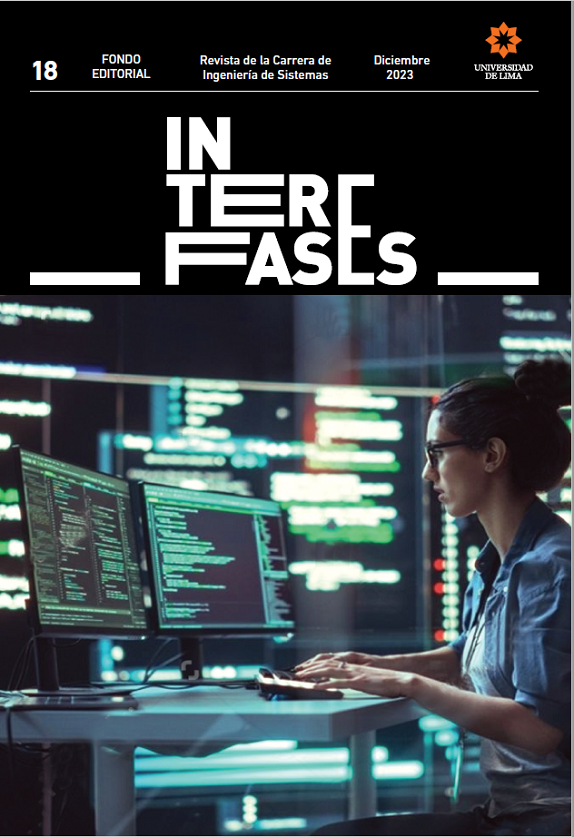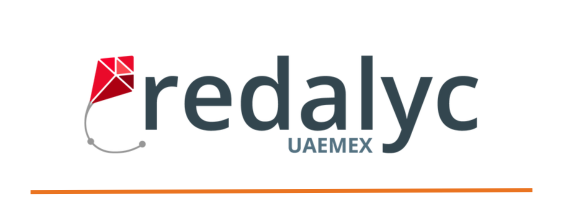STEAM Approach in Continuing Education: Actions to Promote Gender Equality Practices in STEM
DOI:
https://doi.org/10.26439/interfases2023.n018.6616Keywords:
STEAM, continuing education, gender equality, qualitative systematic reviewAbstract
This study presents discussions on the importance of promoting interventional actions in the school context, through continuing teacher training involving the STEAM approach, to make the teaching and learning process more attractive and encourage more girls to be interested in STEM areas. For this, a Qualitative Systematic Review was carried out, making it possible to conclude that investing in actions involving the STEAM approach represents a potential for innovating educational practices, as well as supporting the presence of girls in STEM areas.
Downloads
References
Bacich, L., & Holanda, L. (2020). STEAM em sala de aula: a aprendizagem baseada em projetos integrando conhecimentos na educação básica. Penso Editora.
Diniz, Y. (2020). Competências Socioemocionais BNCC: o que são e como desenvolver. Imagine Educação. https://educacao.imaginie.com.br/competencias-socioemocionaisbncc/
Figueiredo, K. S., Maciel, C., Bim, S. A. e Amaral, M. A. (2020). “Gênero e tecnologias”. In: Cristiano Maciel; José Viterbo. (Org.). Computação e Sociedade: A Profissão (Vol. 1, pp. 104-140). EdUFMT - Editora da Universidade Federal de Mato Grosso.
Grant, M. J., & Booth, A. (2009). A typology of reviews: an analysis of 14 review types and associated methodologies. Health Information and Libraries Journal, 26(2), 91-108. https://doi.org/10.1111/j.1471-1842.2009.00848.x
Iwamoto, H. M. (2022). Mulheres nas STEM: um estudo brasileiro no diário oficial da união. Cadernos De Pesquisas, 52. https://doi.org/10.1590/198053149301
Lorenzin, M., Assumpção, C. M. & Bizerra, A. (2018). Desenvolvimento do currículo STEAM no ensino médio: a formação de professores em movimento. Em L. Bacich & J. Moran (Coords.), Metodologias ativas para uma educação inovadora: uma abordagem teórico-prática (pp. 199-219). Penso.
Maciano, G. D., de Lima, W. G., & Maciel, C. (2022). Educação STEAM: potencializando o STEM por meio da arte. Revista UFG, 22.
Maciel, C., Guzman, I.R., Berardi, R., Branisa, B., Rodriguez, N., Frigo, L., Salgado, L., Jimenez, E., Bim, S.A., Cabero, P. (2023). “Open Data Platform to Promote Gender Equality Policies in STEM.” Proceedings of the Western Decision Sciences Institute (WDSI). April 2023. Portland, Oregon, USA.
Oliveira, E. R. B. de, Unbehaum, S., & Gava, T. (2019). Stem education and gender: A contribution to discussions in Brazil. Cadernos De Pesquisas, 49(171), 130–159. https://doi.org/10.1590/198053145644
Oliveros Ruiz, M. A. (2019). STEAM as a tool to encourage engineering studies. Revista Científica, 2(35), 158-166. https://doi.org/10.14483/23448350.14526
ONU. (2023). Nações Unidas Brasil. Objetivos de Desenvolvimento Sustentável. https://brasil.un.org/pt-br/sdgs.
Radovic, D. (2022). Traduciendo discursos sobre equidad de género en intervenciones escolares: conflictos entre la visibilidad/invisibilidad del género y la construcción de habilidades matemáticas. Revista Colombiana de Educación, 86, 277-304. https://doi.org/10.17227/rce.num86-12400
Wu, Z. (2022). Understanding teachers’ cross-disciplinary collaboration for STEAM education: Building a digital community of practice. Thinking Skills and Creativity, 46(101178), 101178. https://doi.org/10.1016/j.tsc.2022.101178
Downloads
Published
Issue
Section
License
Authors who publish with this journal agree to the following terms:
Authors retain copyright and grant the journal right of first publication with the work simultaneously licensed under an Attribution 4.0 International (CC BY 4.0) License. that allows others to share the work with an acknowledgement of the work's authorship and initial publication in this journal.
Authors are able to enter into separate, additional contractual arrangements for the non-exclusive distribution of the journal's published version of the work (e.g., post it to an institutional repository or publish it in a book), with an acknowledgement of its initial publication in this journal.
Authors are permitted and encouraged to post their work online (e.g., in institutional repositories or on their website) prior to and during the submission process, as it can lead to productive exchanges, as well as earlier and greater citation of published work (See The Effect of Open Access).
Last updated 03/05/21






